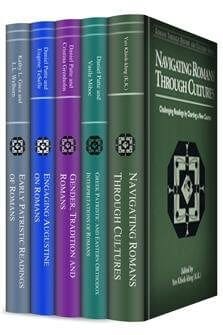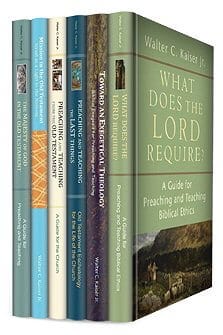Paul’s letter to the Romans is as important as it is dense. In precise, nuanced Greek, Paul articulates Christianity’s theological foundations.
So how do we decipher the meaning of this ancient, foreign text? Here we have arguably the key to understanding the faith—and it’s packed with references to Jewish covenantal law, natural law, and the cultural background shared by Paul’s Greco-Roman audience, all in a language marked by countless dialects.
How can anyone hope to really understand this essential treatise?
Get ready to let Logos do the heavy lifting. Here are four reasons a strong background in the Old Testament will be an important asset in your study of Romans:
1. Paul was a rabbi
I’ve never met a rabbi before—let alone one from the first century—but Paul’s participation in the highest form of Jewish devotion and scholarship introduces an enormous package of context that you wouldn’t find in, say, Mark or Luke. Paul’s rabbinic background affected his interpretation of the prophets of the Old Testament—and you can bet he had the whole of Torah memorized.
2. Christianity: the prophesied Jewish eschatology?
Since Christianity is founded on the texts and traditions of Judaism, understanding how Judaism sees itself ending (its own eschatology) is key to understanding Christianity and the church. And what of the Jewish eschatology discourse from Romans 8:18–11:36? Paul introduces Old Testament quote after Old Testament quote in support of his theological conclusions—but how familiar are we with what he’s quoting?
3. Paul speaks often of the “Jew and Greek”
In Romans 3, Paul speaks often of what it means to be Jewish and what it means to be Gentile or Greek (and, ultimately, what it means to be Christian) in the first century. Is the weight of this argument lost on us? Perhaps some of it—but, by studying the Old Testament, we can get a perspective on the ethnic identity adapted by Israel over the centuries.
4. The Abraham discourse of Romans 4
How can we understand Paul’s argument for justification in chapter 5 if we don’t know, from chapter 4, who Abraham was? I don’t mean the bedtime-story Abraham—I mean Israel’s Abraham, the father of nations and the beginning of the Jewish ethnic heritage.
Study the Old Testament and Romans
Four of our most recently updated collections emphasize Romans or the Old Testament. Here’s how each can improve your study:
 Baker Walter C. Kaiser Collection (6 vols.)
Baker Walter C. Kaiser Collection (6 vols.)
Mission in the Old Testament: Israel as a Light to the Nations is an important volume for understanding Jewish identity and God’s mandate to the Jewish people. If you plan on studying the latter half of Romans (8–16), this kind of background information might be useful. But it’s even more useful if you’re a pastor or student: numerous volumes cover teaching, preaching, and exegesis for the church.
Romans through History and Culture Series (5 vols.)
Romans was one of the theological texts at the epicenter of theological debate during the Protestant Reformation. The Romans through History and Culture Series takes you through the interpretation and application of Romans, from medieval and ancient times to today, to provide both a broad and a precise view of how Romans was read by Augustine and the early Church Fathers.
 Teach the Text Commentary (6 vols.)
Teach the Text Commentary (6 vols.)
Teach the Text: Romans by C. Marvin Pate provides an outstanding high-level overview. Pate discusses Romans’ major hermeneutical issues, including the New Perspective on Paul (at Romans 3). You don’t need to know Greek to understand this, and even if you read it fluently, the rhetorical analysis will be invaluable.
Works of N.T. Wright (48 vols.)
Paul for Everyone: Romans parts 1 and 2 provide readable, scholarly approaches to Romans. N.T. Wright adapts the New Perspective on Paul very naturally, if that interests you—but he doesn’t hit you over the head with it, so you can disagree and still find value in his commentary. This collection also contains endless discourse on the man himself, so if you’re itching to study Paul, look no further!
Pick up your favorites, and start studying Romans with Logos 8 today.


 Baker Walter C. Kaiser Collection (6 vols.)
Baker Walter C. Kaiser Collection (6 vols.) Teach the Text Commentary (6 vols.)
Teach the Text Commentary (6 vols.)


